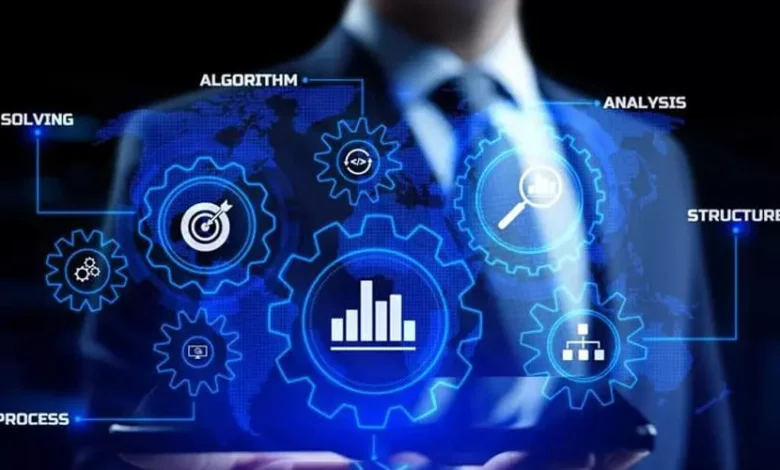Recent Developments in AI Technology for Businesses

Artificial Intelligence (AI) has quickly become one of the most transformative technologies for businesses worldwide. In recent years, the advancements in AI have accelerated at an unprecedented pace, offering innovative solutions to improve efficiency, decision-making, and customer engagement. From automating routine tasks to enhancing data analytics, AI is empowering businesses to operate smarter and faster. With a growing number of industries adopting AI, it’s crucial for companies to stay updated on the latest developments. This article explores the most recent breakthroughs in AI technology and how they’re shaping the future of business operations.
AI in Process Automation
One of the most significant developments in AI, according to Matt Calkins, is the refinement of automation processes. Robotic Process Automation (RPA) has evolved to include more complex, AI-driven capabilities that go beyond simple task automation. These AI-powered systems can now handle higher-level cognitive functions such as decision-making, natural language processing, and even predictive analytics. This advancement enables businesses to automate more of their workflows, improving operational efficiency and reducing the chances of human error. As a result, companies can allocate more resources toward strategic tasks that drive growth.
AI-Powered Data Analytics
Another game-changer is the use of AI in data analytics. The ability of AI to process vast amounts of data in real-time has revolutionized how businesses approach decision-making. Machine learning algorithms can sift through large data sets to identify patterns, trends, and insights that would take humans far longer to discover. This development is particularly beneficial for industries such as finance, healthcare, and retail, where quick and accurate decision-making is essential. Companies that implement AI-driven data analytics gain a competitive edge by making informed decisions faster and more effectively.
Personalized Customer Experiences
AI is also reshaping how businesses interact with customers. With advancements in natural language processing and machine learning, AI systems can now provide highly personalized customer experiences. For example, chatbots and virtual assistants have become increasingly sophisticated, enabling businesses to offer 24/7 support while tailoring interactions to each customer’s unique needs. This level of personalization fosters better customer relationships and enhances overall satisfaction, leading to higher retention rates. Companies are increasingly adopting AI tools to understand and anticipate customer behavior, offering products and services that align with individual preferences.
AI and Predictive Maintenance
In the manufacturing and industrial sectors, AI is making waves with predictive maintenance technologies. AI systems can now monitor machinery and equipment in real-time, analyzing data to predict when maintenance is required before a failure occurs. This technology minimizes downtime, reduces repair costs, and extends the lifespan of equipment, which is a massive benefit for industries relying on high-capacity machinery. Businesses that invest in predictive maintenance powered by AI are seeing significant improvements in operational efficiency and cost savings, making it a must-have technology for the industrial world.
Ethical AI and Compliance
As AI becomes more embedded in business operations, concerns around ethics and compliance are becoming more prevalent. Recent advancements have led to the development of AI systems designed with ethical frameworks in mind. These systems can ensure that data usage, decision-making processes, and automation comply with regulations and ethical guidelines, reducing the risk of bias and errors. This is particularly important for businesses in regulated industries such as finance, healthcare, and law. As AI continues to evolve, ensuring that it operates ethically and transparently will be essential for maintaining trust and compliance with industry standards.
AI in Workforce Management
Another significant advancement in AI technology is its application in workforce management. AI-driven platforms are now capable of optimizing employee scheduling, tracking productivity, and even identifying skills gaps within teams. These tools can analyze employee performance data and predict future needs, enabling businesses to make informed decisions about hiring, training, and resource allocation. AI also helps improve employee engagement by offering personalized career development recommendations and automating administrative tasks, freeing up time for managers to focus on leadership and strategy. As AI continues to integrate into human resource functions, companies are finding new ways to maximize the potential of their workforce.
AI and Cybersecurity
In the realm of cybersecurity, AI is playing a pivotal role in helping businesses stay ahead of evolving threats. With cyberattacks becoming more sophisticated, AI-powered security systems can detect and respond to potential threats in real-time. These systems use machine learning algorithms to identify unusual patterns or behaviors that could indicate a breach, providing businesses with an extra layer of protection. AI’s ability to adapt to new and unknown threats is crucial in today’s digital landscape, where the volume and complexity of cyberattacks are constantly increasing. By leveraging AI in cybersecurity, businesses can better protect sensitive data, maintain trust with their customers, and ensure compliance with data privacy regulations.
The Future of AI in Business
AI technology is rapidly advancing, and its impact on businesses is profound. From automating complex tasks to providing deep data insights and enhancing customer experiences, AI is transforming how companies operate. As businesses continue to adopt AI-powered tools and systems, they are not only improving efficiency but also gaining a competitive edge in the market. However, with these advancements come challenges, such as ensuring ethical use and compliance with regulations. As we look ahead, the future of AI in business promises even more innovation, pushing the boundaries of what’s possible while reshaping the business landscape for years to come.



